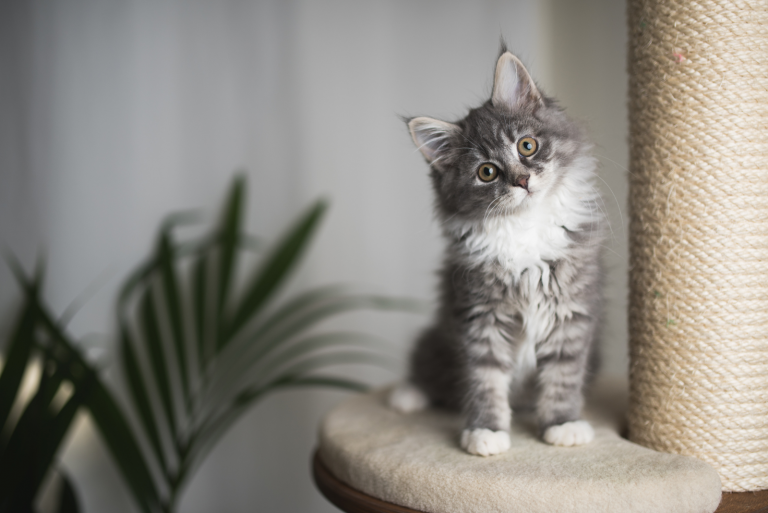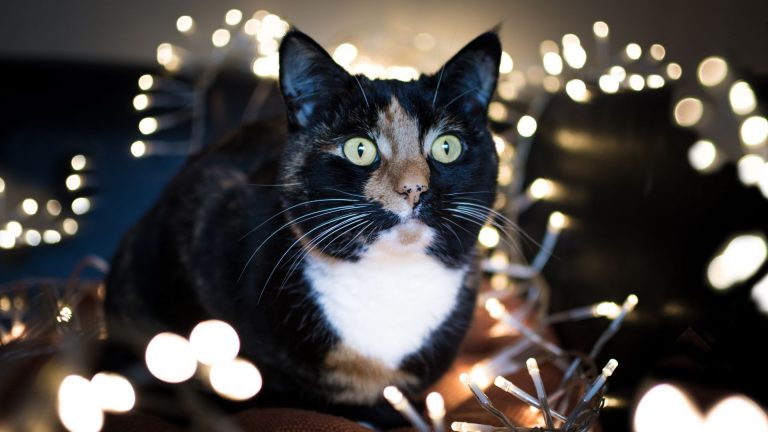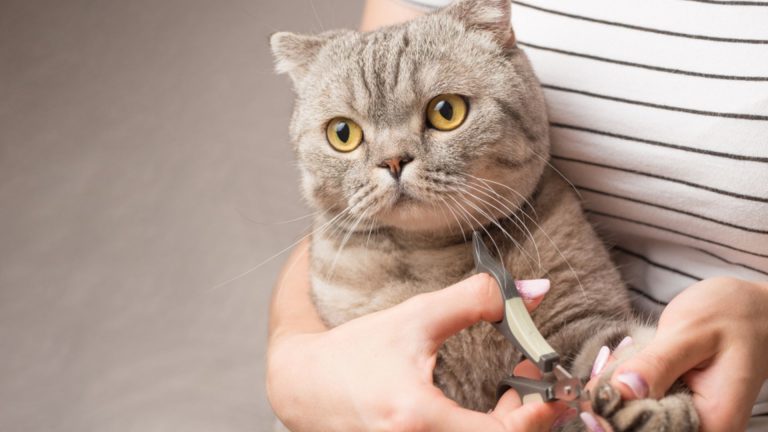Cat Leaking Brown Fluid – Causes, Symptoms, and Treatment
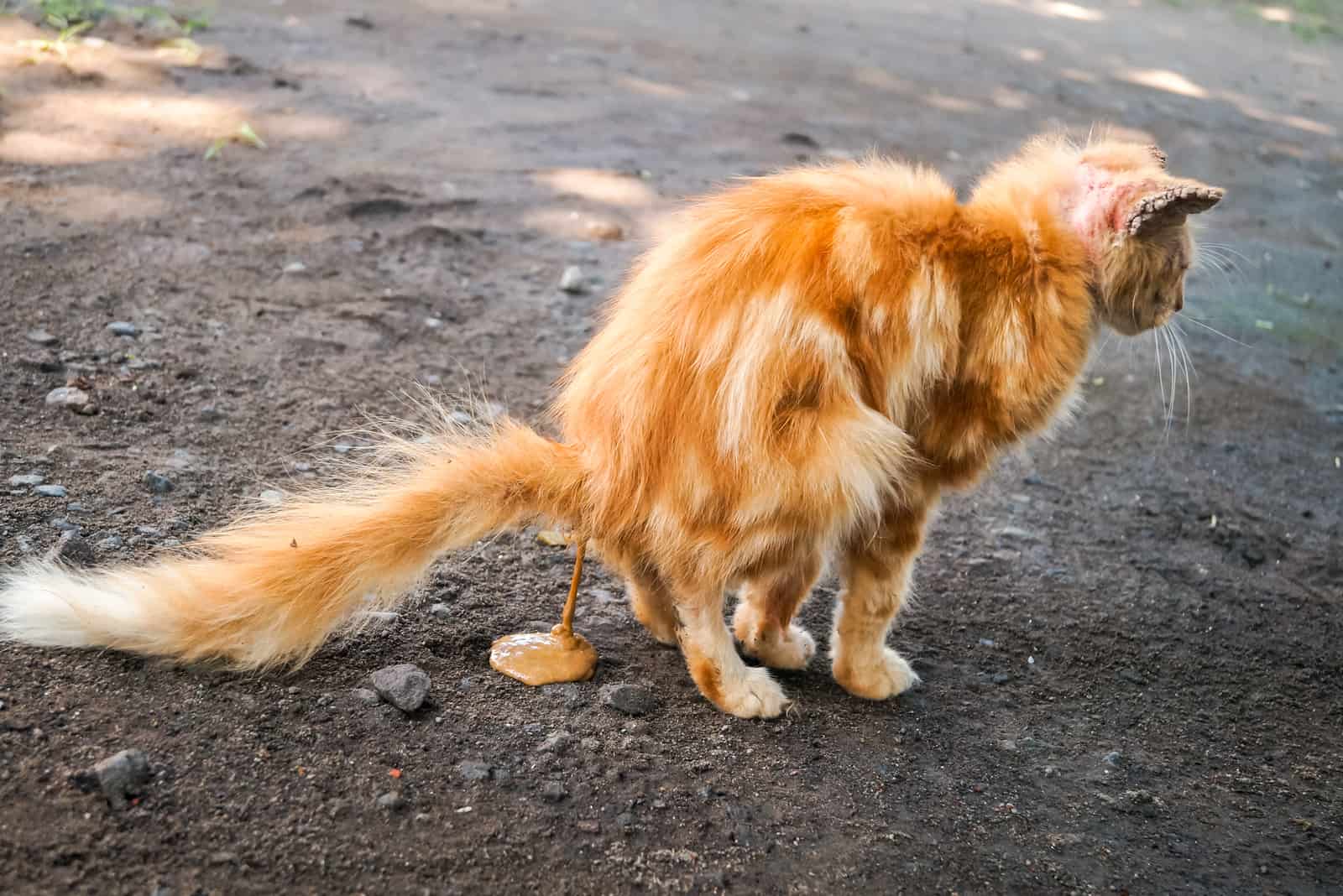
It is important for every pet owner to know that having a pet also means having great responsibility. In this case, one of the greatest responsibilities is taking care of your cat’s health.
Of course, your cat isn’t able to tell you what’s wrong with it, so you have to be vigilant and pay close attention to any unusual behavior to discover potential problems it may have.
Speaking of unusual things and potential problems, here is a question for you: have you ever noticed your cat leaking brown fluid? If the answer is yes, then you will know that it isn’t a good sign. But, luckily, you’re in the right place, and I’m here to help you! Stick around and find out how to recognize this problem and treat it!
3 Main Reasons Why A Cat Is Leaking Brown Fluid
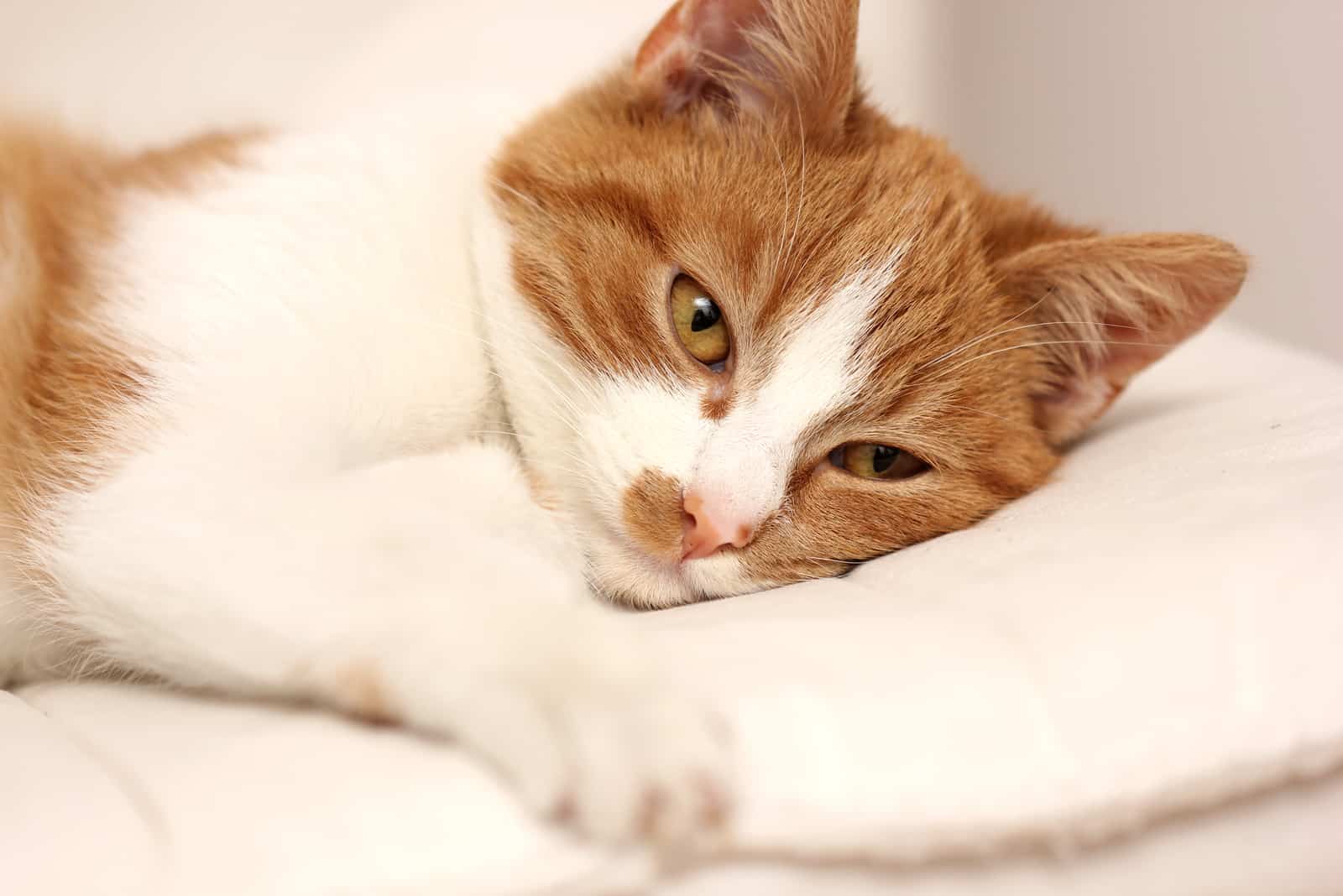
Cats that use a litter box, especially indoor cats, will not usually poop outside of it. However, not every cat is able to control its bowels, so if you see your cat’s mess outside the litter box, don’t panic!
The poor cat obviously has problems and just couldn’t hold it any longer. To take good care of your cat, start by learning the three main reasons for this problem.
1. Diarrhea
If your cat is leaking brown fluid from the rectum, it’s usually because of a case of diarrhea. Diarrhea may occur due to food irritation or various infections. First of all, if you have a female cat, establish that the liquid is from the rectum and not the vulva.
Treatment
How to treat diarrhea? Don’t worry – it’s not usually serious. If your cat has diarrhea, you should provide it with a lot of water to drink to prevent dehydration. Maintaining a healthy diet is also very important.
Do you need to contact your veterinarian? If the diarrhea doesn’t stop in one or two days or the cat starts exhibiting other symptoms, such as fever, then you should definitely take your cat to the vet. They will determine the underlying cause and decide what’s best for your cat.
2. Gastrointestinal Issues
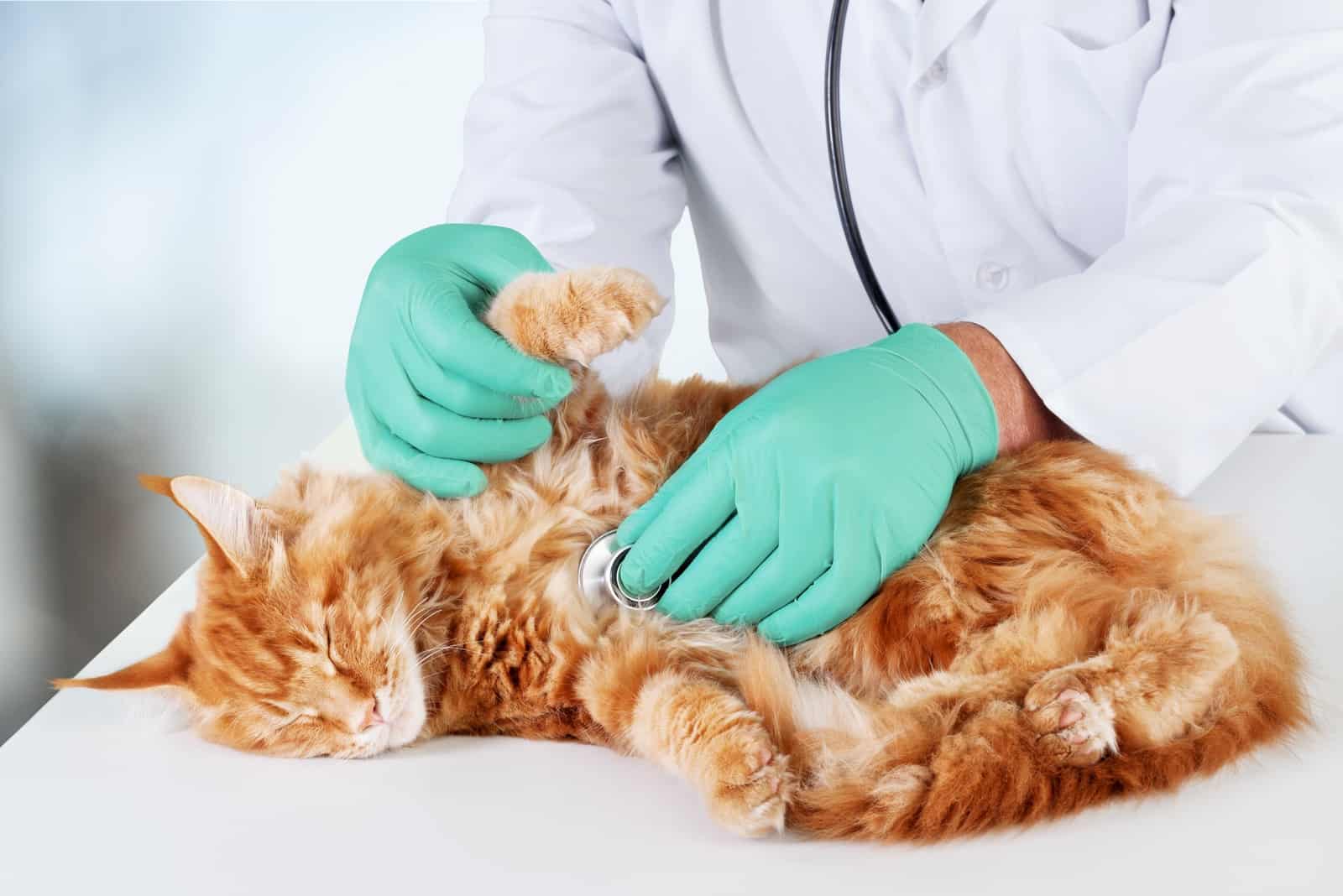
Leaking brown liquid may also be due to gastrointestinal issues. Gastrointestinal symptoms may include diarrhea, vomiting, loss of appetite, and even weight loss. It is essential for every cat owner to pay attention to these symptoms in order to get urgent treatment and prevent more serious illness.
Treatment
If you notice that your cat is behaving differently or has any of these gastrointestinal symptoms, you should take it to the veterinarian for a checkup. After that, the vet will decide whether your cat needs further tests or treatment for parasites, a trial of dietary changes, or something else. It all depends on the cat’s diagnosis after examination.
3. Anal Sac Disorder
Anal sacs, also called anal glands, are small pouches located on each side of the anus, which is the cat’s rectal opening. Every cat has them, both male cats and female cats. These glands produce fluid that helps them mark their territory with a unique scent, and they provide lubrication with a small amount of anal fluid when a cat has a bowel movement.
These secretions from the anal glands are very similar to those of a skunk, which it uses when frightened or feeling in danger. Cats can also use the secretions for the same purpose, but they don’t always choose to.
These anal sacs may become irritated or infected by the bacteria from feces, causing your cat to leak brown discharge.
This can happen if your cat suffers from impaction, where the canal of the anal gland becomes blocked, and the gland fills with fluid and becomes swollen.
This can lead to infection, which can cause a foul odor and be really painful for your cat, requiring special medical care.
Anal sac disease is often called cat hemorrhoids, however, there is no such thing as cat hemorrhoids.
What Are The Symptoms of Anal Sac Disorder?
There are several common causes that can lead to anal sac disorder. There are also several symptoms that may indicate that your cat is experiencing severe anal sac problems. These include the following symptoms:
Licking and biting
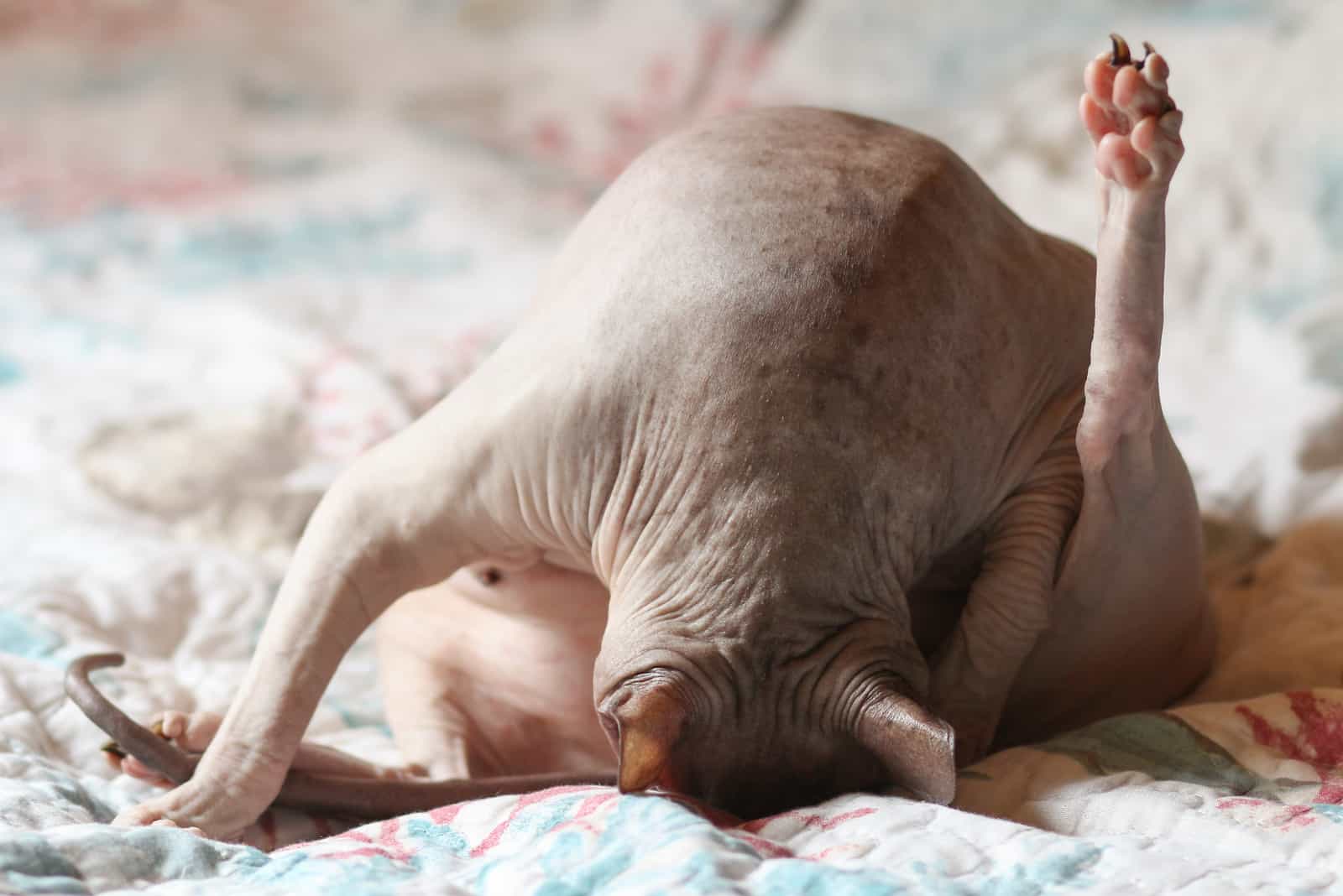
Pay attention to your cat, especially if you notice them biting near their tail! If the cat is licking the anal area frequently, it may mean that it can’t release anal secretions and that the glands need expressing manually.
If your cat has anal sac disorder, by frequently licking their bottom, it can introduce the bacteria from its mouth to the area and this can cause more complications such as urinary tract infection (UTI).
Scooting
Scooting is when your cat drags its bottom across the floor like a dog. This is one of the main indicators that something is wrong with the anal sac.
Chasing the tail
If you notice your cat making sudden movements and chasing its tail, it means that something could be bothering them around the anal area.
Difficulties with defecation
If you notice some of these symptoms, you should know that it is very painful and uncomfortable for your cat, and that you should react fast to prevent bigger and more serious problems such as tumors. The sooner you react, the better it will be for your cat!
How To Treat Anal Sac Disease In Cats?
After the vet examines your furry friend, they will decide what type of treatment is necessary and how best to care for your pet’s health going forward.
When a cat suffers from anal sac disease, one of the most common treatment options is to drain the sacs and prescribe antibiotics. That will only happen if the cat has swollen glands. Sometimes, even in this case, surgery may be recommended.If a cat has ruptured glands, the only reasonable option is, of course, surgery to remove the sacs.
2 Most Important Anal Gland Problems
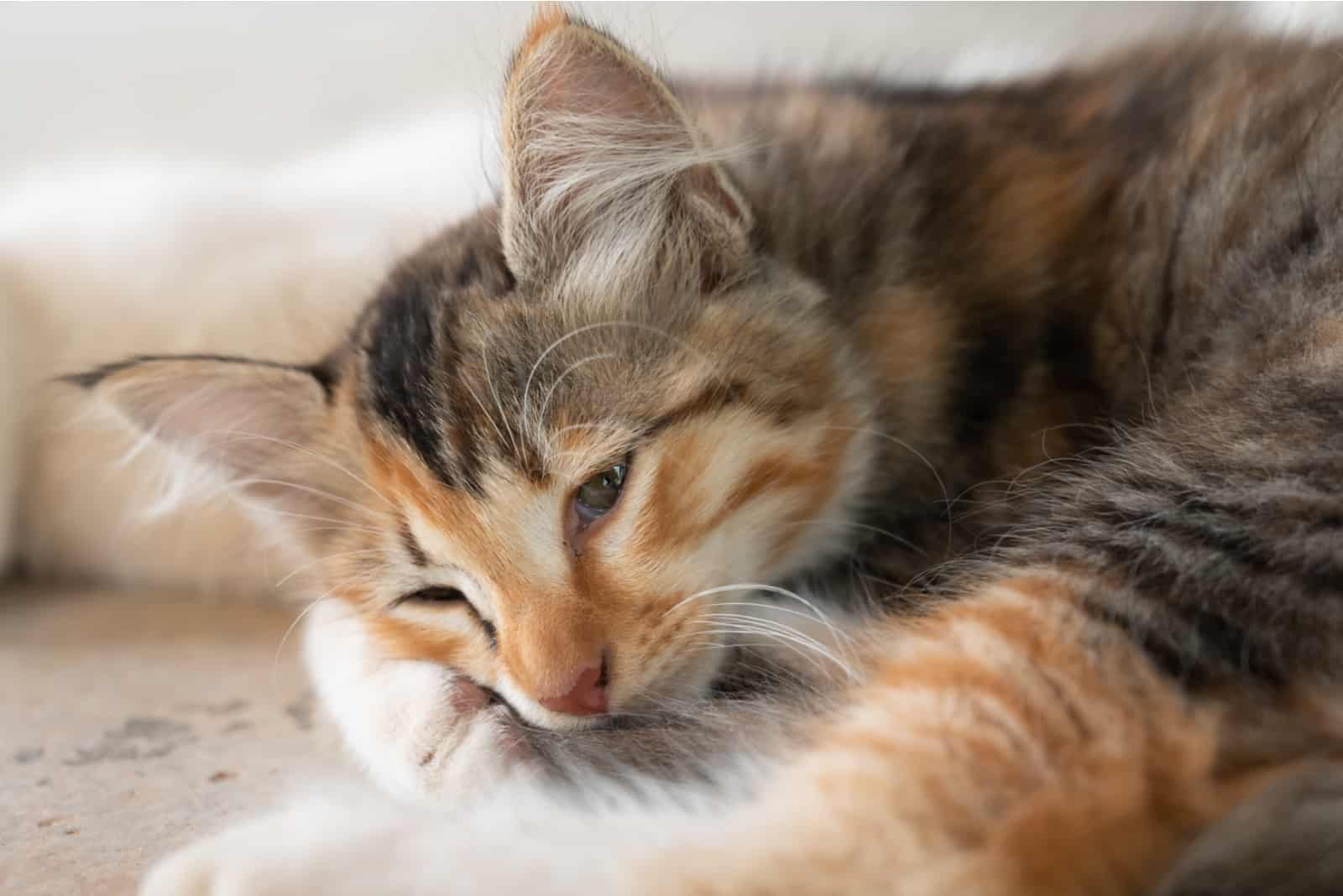
Many different things may lead to anal glands problems, such as diarrhea, a tumor, constipation, etc. Once again, these problems shouldn’t be ignored as they may lead to bigger and more serious issues!
The two most important anal glands problems are infection and abscess.
How To Deal With Anal Gland Infections?
An anal gland infection called sacculitis may cause your cat extreme pain. You will likely notice a yellow or clear liquid around the anal area.
Usually, the bacteria in feces come out with secretion during a bowel movement. But if the canal of the gland is blocked, the bacteria cannot be expelled and this can lead to serious infection.
If you don’t treat the infection, your cat may be left with an abscess. If you think there is an infection, don’t worry but seek medical advice as soon as possible. In most cases, the vet will prescribe an antibiotic to get rid of the infection.
What If An Abscess Appears In A Cat’s Anal Gland?
The most serious outcome of an untreated infection is an abscess. If you don’t take care of an infection, you’ll soon have bigger problems. When the glands become red and then purple, it means that an abscess has formed.
Left untreated, the abscess can rupture, which can lead to the spread of the infection. Therefore, going to the vet is always recommended.
In some cases, the vet will be able to clean the area, and it will heal with antibiotics. In more serious cases, sometimes surgery is necessary. The veterinarian should always inform you about the potential risks of surgery.
After surgery, some cats may lose control of the bowels, as the nerves around the anus are damaged during the removal of the sacs. Luckily, this is usually only temporary and resolves when they are fully recovered.
What Should You Do If Your Cat Is Leaking Brown Fluid?
A cat leaking brown liquid can be a symptom of various conditions. So the best thing to do is to wait and pay attention to your cat and its behavior.
If the cat continues leaking brown fluid and it doesn’t stop within a day or two, you should contact your veterinarian and take your cat for a checkup. It is important to tell the vet all of your cat’s symptoms, such as diarrhea or soft stools as well as any change in behavior you have noticed.
The vet will run some checks such as blood tests, urinalysis, and an electrolyte panel, after which the cat can be diagnosed and a plan made so that it will receive the correct care.
Final Thoughts
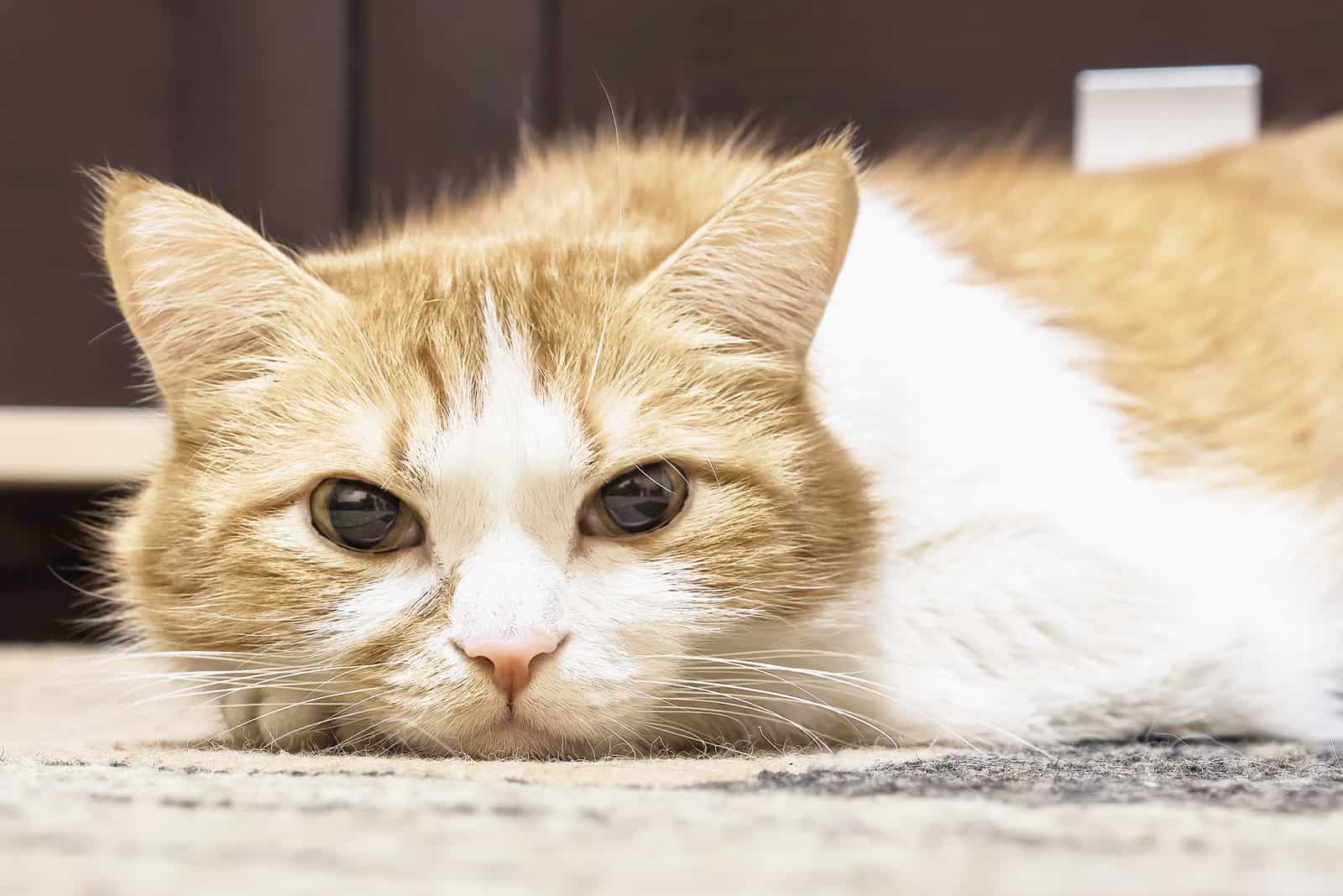
There may be many reasons why your cat is leaking brown fluid. Some of them are mild and self-limiting, while others are more serious.
If you are a cat owner, it’s important for you to know the potential causes of this problem, how to recognize the symptoms, and how to react.
Depending on the diagnosis, the cat will usually recover with antibiotics, but in more serious cases, surgery is required.
There’s nothing worse than seeing your beloved pet having to deal with health issues. So if you want your cat to be happy and playful, take good care of it, and go to the vet regularly.

